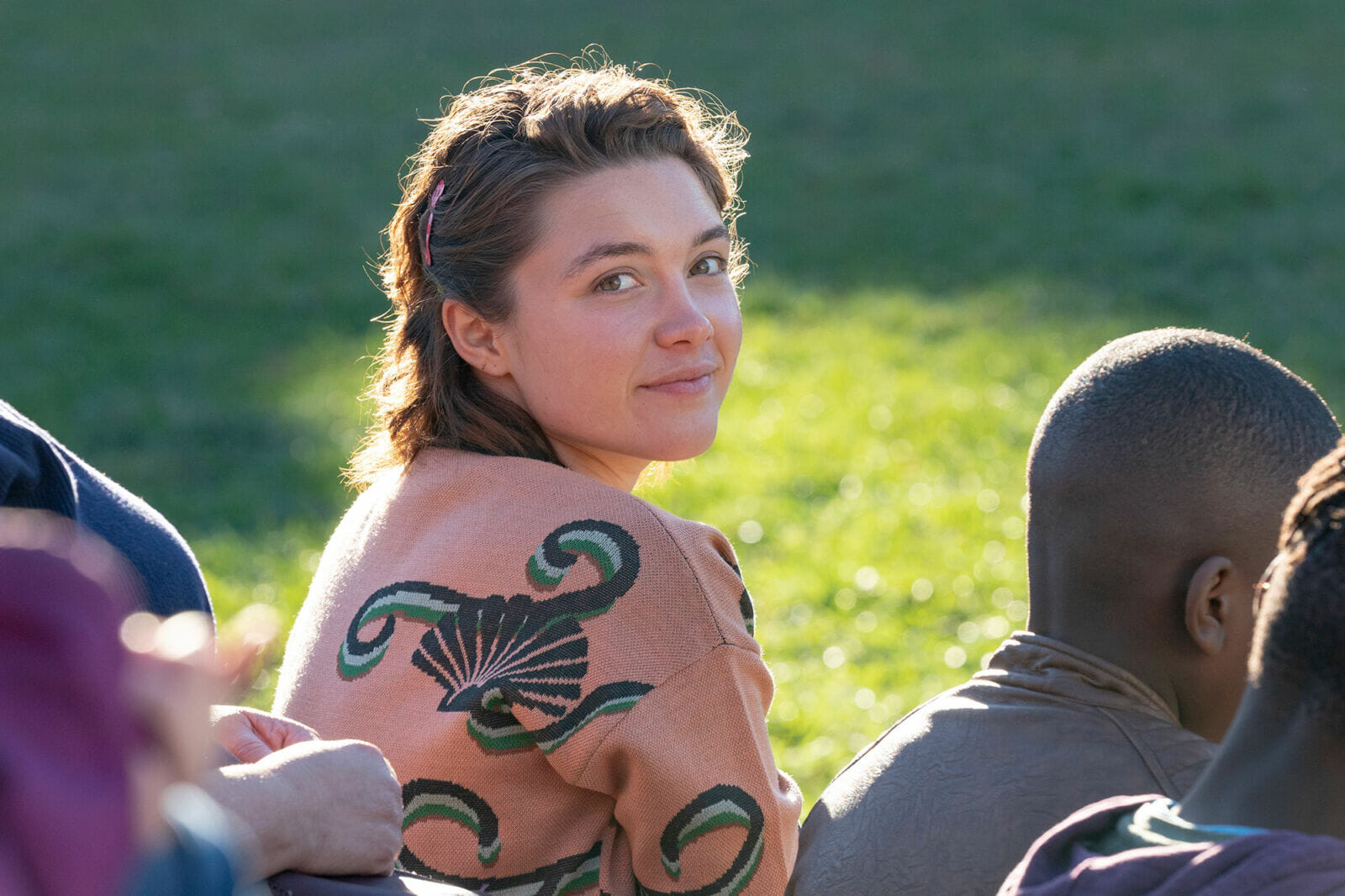The main person of A Good Person, a young woman named Allison, doesn’t think she’s a good person (that’s why the movie’s called that). Her marriage, life, and self-esteem shattered when she was involved in a car crash that killed her fiancée’s sister. Years later, whether she was distracted by her phone is a lingering tension—her would’ve-been father-in-law, the film’s second-most main person, seems to think so, but Allison swears her eyes were on the road, stranding the audience in the cognitive dissonance of trauma, doubt, and guilt. The uncertainty exemplifies the nuance of this poignant, difficult drama.
…is what I wish I could say. In reality, the film makes more than clear that Allison was looking at her phone, even framing the phone in close-up to echo her tunnel vision on the screen. You’re staring at the maps app through her eyes, blue route lines a foot from your face, when bam, cut to collision. The arguments about what really happened are just signs of Allison’s denial. Cementing her responsibility hits at a central theme—that of facing harsh realities—but it exemplifies the obviousness of this trite, unsubtle drama.
READ ALSO: Read all of Ryan Bordow’s movie reviews here
READ ALSO: Here’s how Arizona film incentives could attract filmmakers
To be fair, it’s only trite and unsubtle at its worst. Writer/director Zach Braff has matured since Garden State—now rightly dismissed as ground zero for the modern manic pixie dream girl—and his meditations on guilt and loss are disarmingly honest. His penchant for understated comedy lends a naturalism to his writing, grounding the lows of life in the droll rhythms of the day-to-day. This is especially effective in the film’s treatment of addiction: ever since the crash, Allison has been consumed by addiction to opioids, a struggle that Braff is careful not to sensationalize. This respect bleeds through his writing—there’s always more going on with Allison than the easily dramatized addiction cycle—but it’s even more evident in his direction, particularly of Florence Pugh’s performance.
Since no one else is saying it, I’ll be the brave, lonely voice: Pugh is an incredible actor. What she brings to the film makes the film. Her performance understands addiction with heartrending intimacy—it’s not just a sickness, it’s a job; it’s an eternal to-do list of fighting the urge to use. With every hour comes a new craving, with every craving comes the nth time you’ve had to convince yourself that day that you’re not a piece of shit. It’s the kind of job that can erode your sense of self—you’re both the worker who keeps failing and the boss itching to let you go. It’s lonely, circular agony, and Pugh is appropriately haggard. She’s just exhausted, with the work and with herself, and her ache seethes through her wounded, expressive frown.
She’s so far and away the best thing about the movie that one wonders what it would be without her—but there is no A Good Person without Florence Pugh. It’s not even hypothetical. Braff, who was Pugh’s partner when he wrote the film, was palpably informed by the fullness of her humanity, the kind you see in all its dimensions when you’re that close to a person. A performance this phenomenal is born only of symbiosis. Braff also pulls some real acting out of Morgan Freeman, who plays Allison’s would’ve-been father-in-law, but it’s nothing compared to the turn from Pugh. She’s the broken soul of the film.
Shame the ending is so terrible that it threatens to obscure her. The film succumbs to the lure of a tidy finale, stitching up all its rawness for a lump of unearned schmaltz. It speeds through the recovery process with what borders on disinterest, decelerating only to present—with little buffer time between them—two original piano ballads written and performed by Florence Pugh. It’d be reductive to call A Good Person a talent show put on by Pugh’s boyfriend, but the last act sure invites that slander. And then it has the audacity—the sheer gall—to end on a Morgan Freeman voiceover about how life isn’t neat and tidy. A Morgan Freeman voiceover is the tidiest finale in the world, A Good Person.
Still, the film’s script shows promising growth for Braff, and Pugh’s performance is another one for the ages. She’s a stirring reminder that no matter our pasts, no matter our struggles moving forward, we and Allison are still good people. Now that’s why they call it that.
★★½ (2.5/5)




